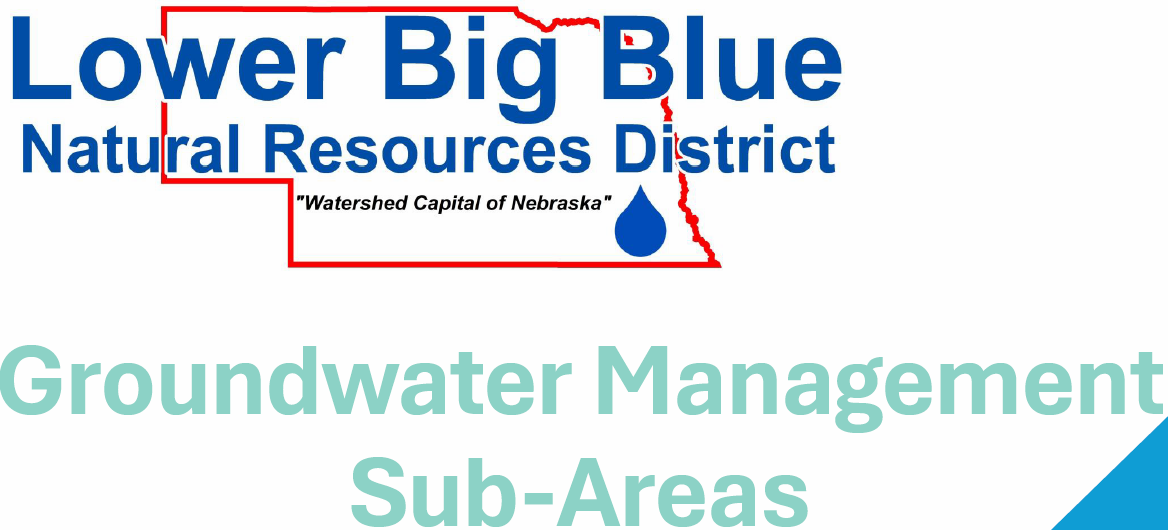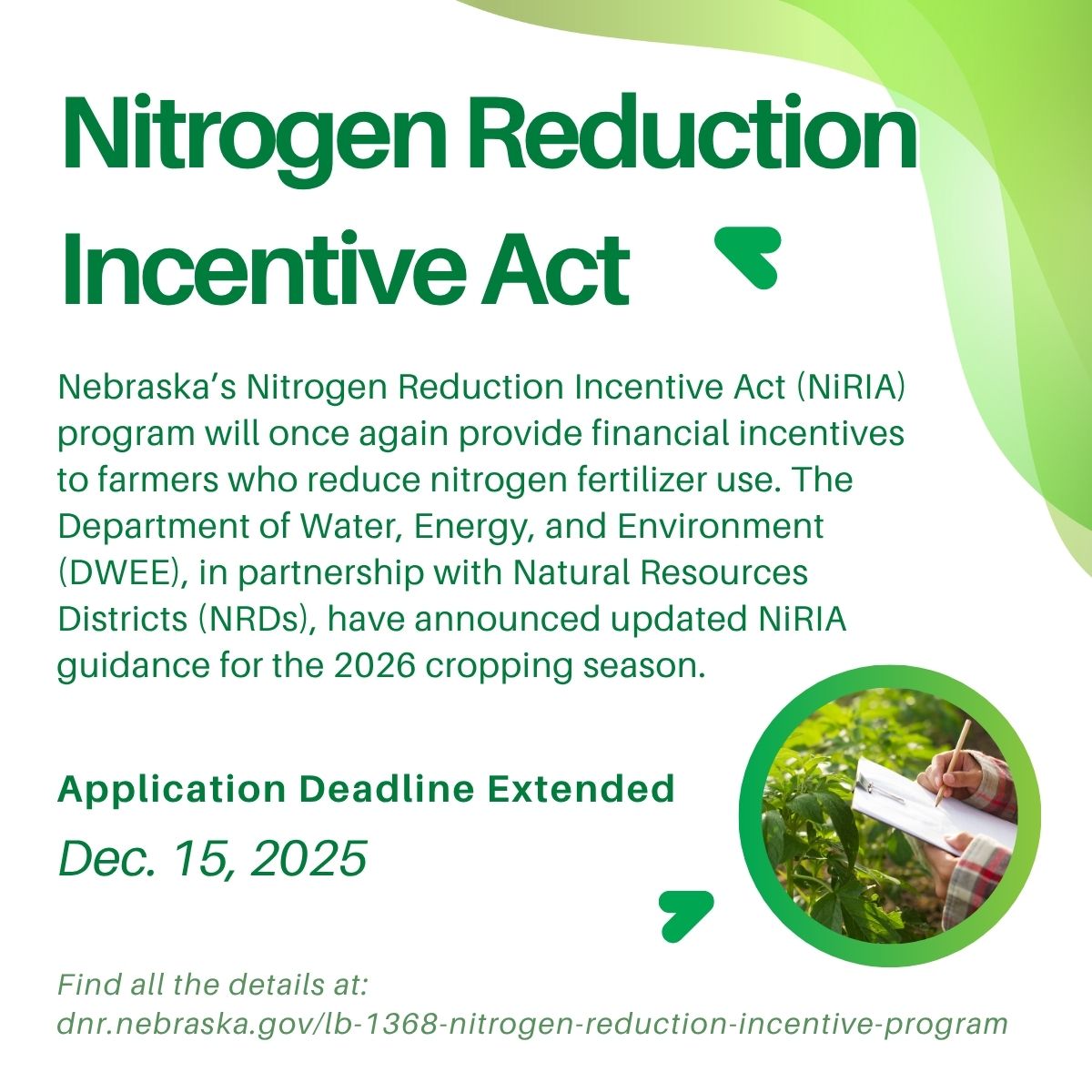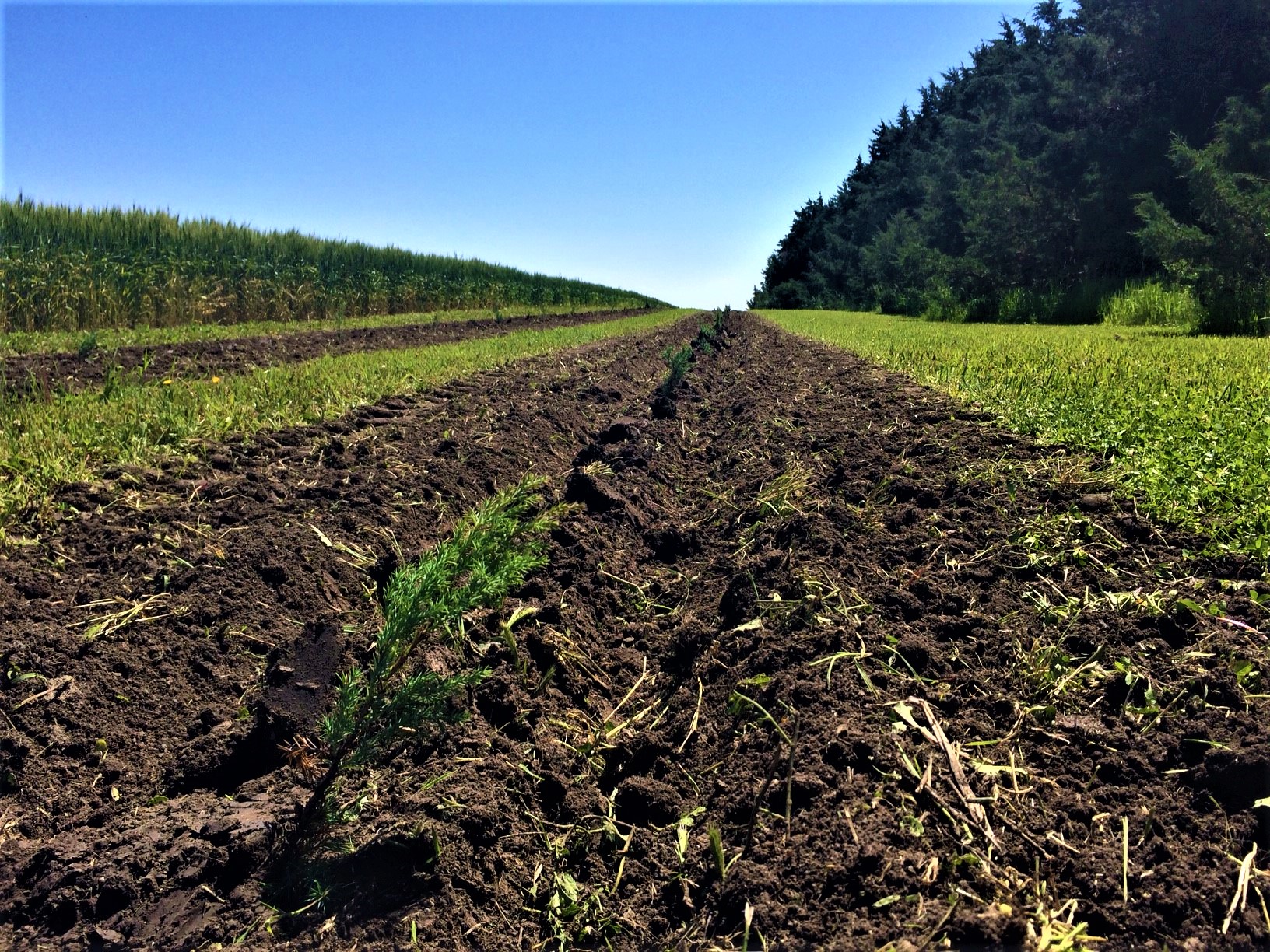Watershed Capital of Nebraska

The Lower Big Blue NRD Community
Unique to Nebraska, Natural Resource Districts are local government entities with broad responsibilities to protect the State's natural resources. The main stream flowing through the District is the Big Blue River, with other important tributaries being Bear, Big Indian, Cedar, Cub, Little Indian, Mission, Mud, Pierce, Plum, Swan, Turkey, Walnut, and Wolf-Wildcat Creeks.
Within the District agriculture is the principal enterprise with row crop being the predominant land-use and corn and soybeans being the primary cash grain crops.
Districts are organized by Nebraska's major river basins to allow for the implementation of better management practices across similar topography and resource concerns.
The Lower Big Blue Natural Resources District is located in southeast Nebraska, adjoining Kansas, and is in the lower portion of the Big Blue River Basin.
Created to solve flood control, soil erosion, irrigation runoff and groundwater management issues, Nebraska's NRDs are involved in a wide variety of programs and projects.
Revised Groundwater Rules Approved
The Rules and Regulations will become effective on December 22nd. Click the link to view the documents.
Holiday Hours
The District office will be closed December 26 and January 2. If you need to contact us, use the link to send us a message.
News and Events
Your go-to place for all Lower Big Blue NRD current news and events.




